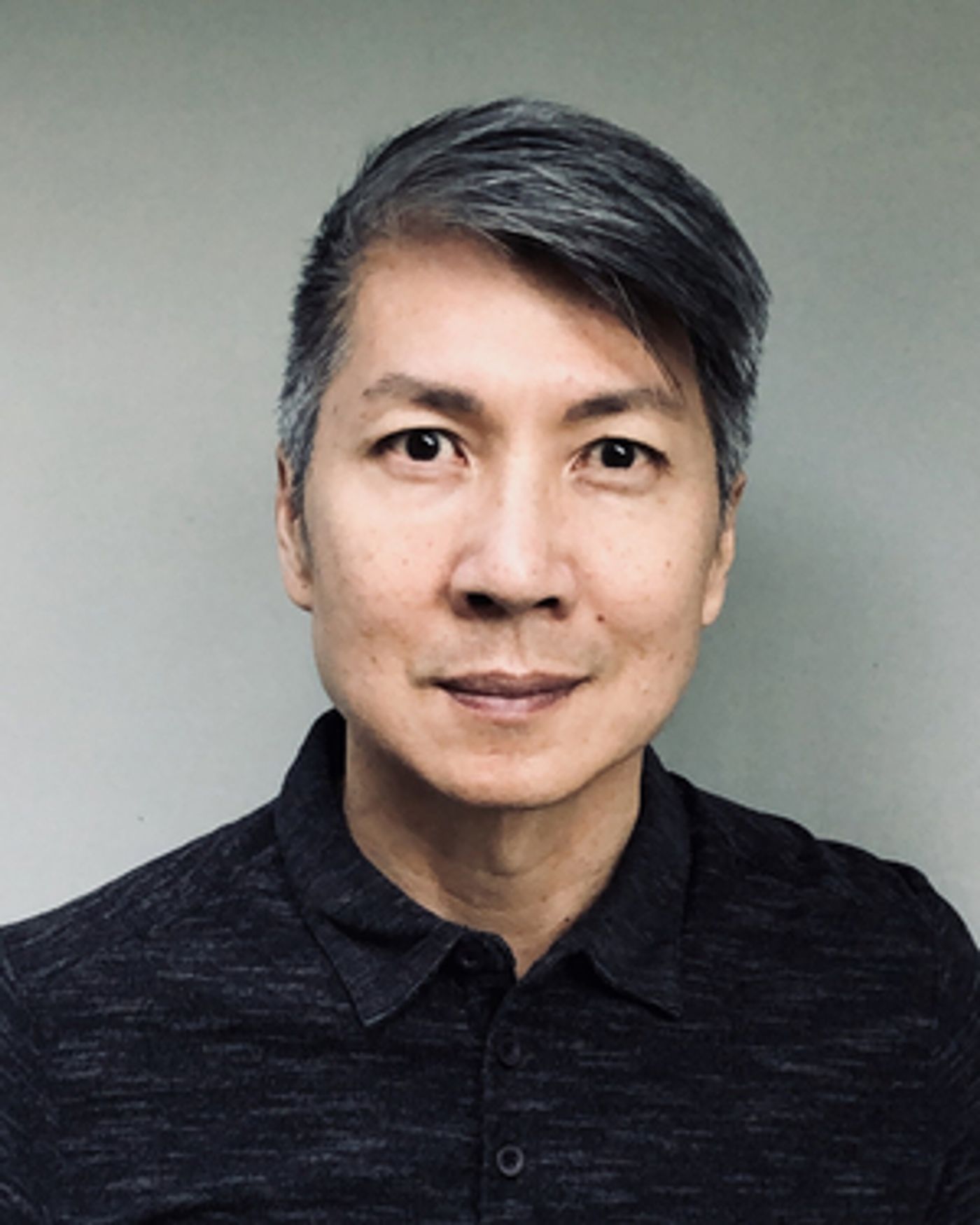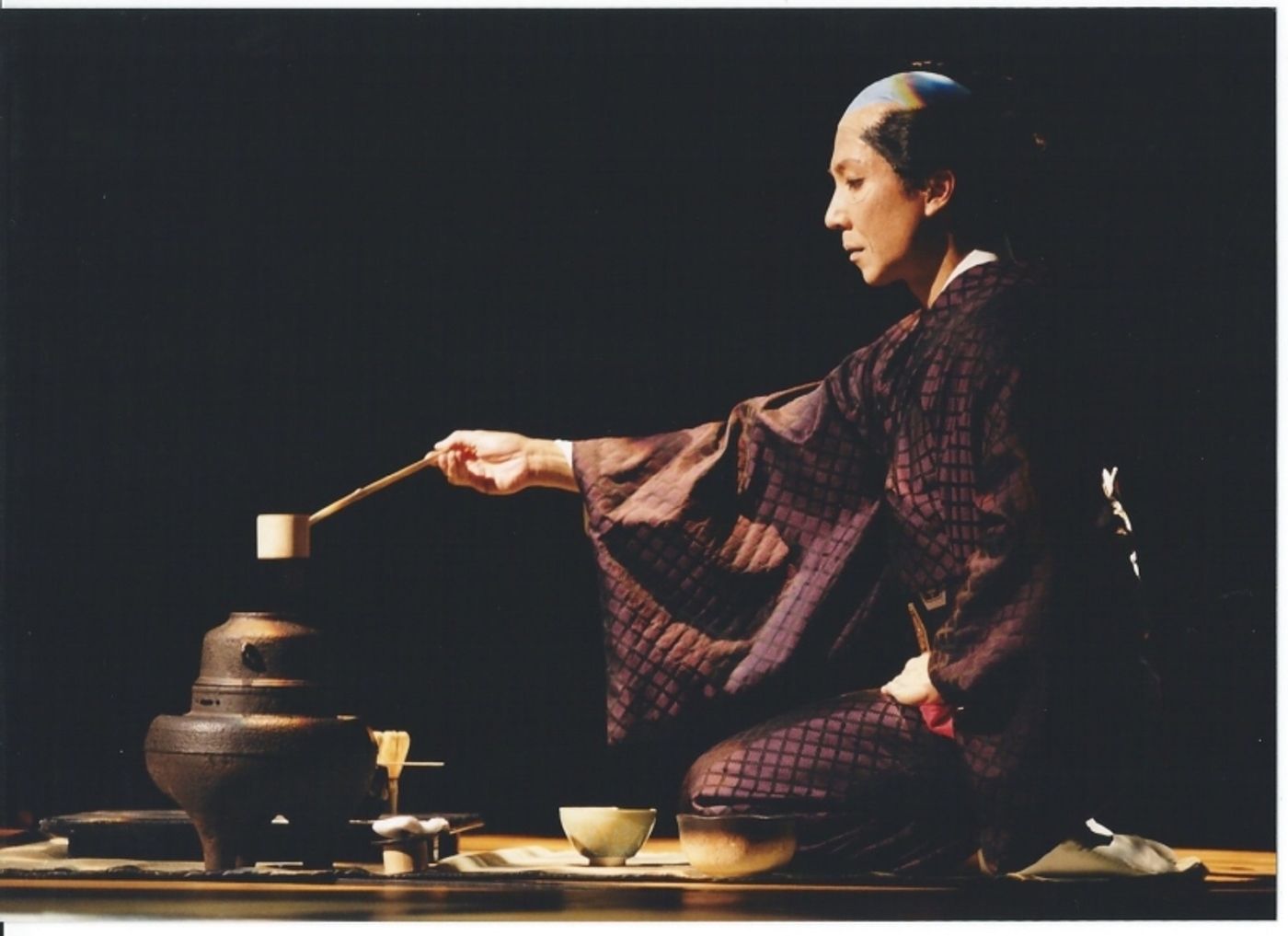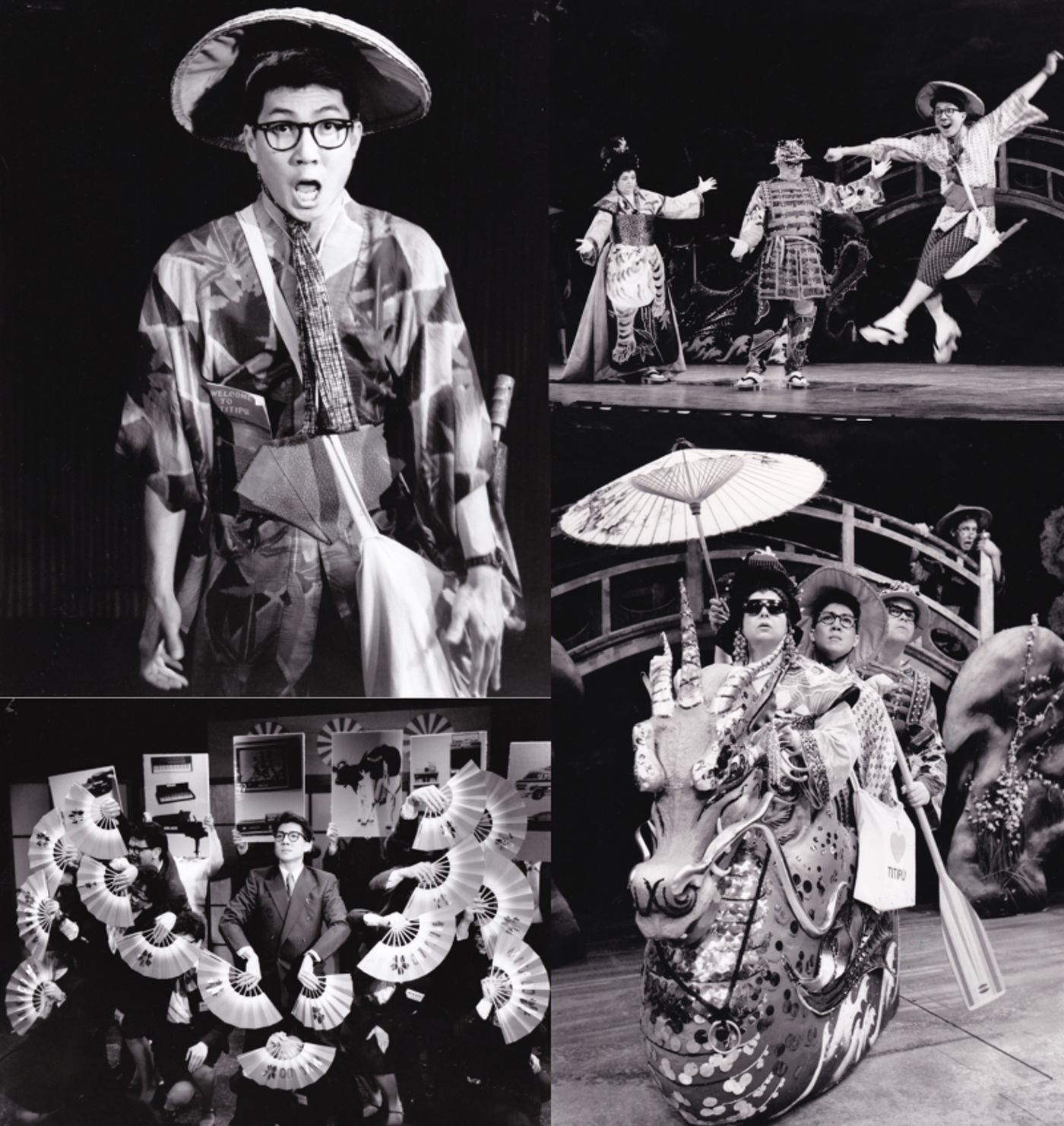Interview: Theatre Life with Jason Ma
The performer/writer on his performing in Signature Theatre's Pacific Overtures and more.

Today's subject Jason Ma is currently living his theatre life telling us all about "The Advantages of Floating in The Middle of The Sea" in Signature Theatre's current production of Stephen Sondheim and John Weidman's underappreciated masterpiece Pacific Overtures. Jason plays the lead role of Reciter plus other characters as well. The production runs through April ninth in Signature's MAX space.
Jason's Broadway credits include Sly Fox, Miss Saigon, Shogun The Musical, The Prince of Central Park, and Chu Chem.
Off-Broadway credits include Antony & Cleopatra at The Public, Hamlet at Classic Stage Company, and The Merchant of Venice at Pearl Theatre Company.
Jason was also seen as Marvin in NAATCO's all Asian-American production of Falsettoland.
International credits include Peter Sellars' Peony Pavilion (London, Vienna, and Rome) and Cambodia Agonistes (Cairo, Johannesburg, and NYC).
For the past fifteen years, Jason had stepped away from performing to pursue writing and composing. So far, the results are Gold Mountain (Utah Shakespeare Festival, World Premiere), Twelfth Night (Kansas City Repertory Theatre, original music and score) and Broken Ground (Village Theatre commission, co-written with Christine Toy Johnson). Read on to see why Signature Theatre's production of Pacific Overtures got Jason back onstage.
Jason is the recipient of the 2017 ASCAP Foundation Cole Porter Award presented to composer/lyricist and the 2021 Harold Adamson Award for musical theater lyricist.
Jason Ma is one of those artists whose career has been very successful on both sides of the footlights. Onstage, he has been lucky enough to be a part of some big budget Broadway musicals (some hits, some not) while sharing the stage with TV star Joanne Worley. He has played Shakespeare and more. His writings have garnered him many accolades and awards.
Now twenty years after playing in a tour of Pacific Overtures (read more below), Jason has come back to this underappreciated musical and you, my fellow readers, are lucky enough to be able to see his performance.
Now it's "your turn" to grab some seats to Pacific Overtures at Signature Theatre. With the show so rarely produced, "There is No Other Way" to catch Jason Ma and company in this fine production under the helm of Signature Theatre's Associate Artistic Director Ethan Heard.
Jason Ma is living his theatre life to the absolute fullest and will be for many more years. He is an incredibly talented artist and we in the DMV are fortunate to have him on one of the area's top stages.
At what age did it hit you that you wanted to become a performer?
I've loved performing since I was a kid, but the desire to become a performer as a profession probably started formulating in high school and came to fruition my freshman year at UCLA when I decided to switch majors and transfer to Theater.
Did you go to school for theatre?
Yes, I love studying and training, and would be happy as a perpetual student! I received a BA in Theater at UCLA and an MFA in classical acting at George Washington University (Shakespeare Theatre Company).
What was your first professional performing job?
I got my Equity card in a 1982 production of Flower Drum Song at the Union Plaza Hotel in Las Vegas. (I worked with my friend Thom Sesma for the first time in this production.)

Photo courtesy of the artist.
Had you been familiar with Pacific Overtures before starting work on Signature Theatre's production?
Yes, I've been listening to the cast album for decades, since it's one of a handful of pieces in the musical theater canon that has roles for Asian actors. Twenty years ago, I was in a mini-tour of Pacific Overtures, playing the role of Manjiro, and the show ran at Alliance Theatre, Cincinnati Playhouse, and North Shore Music Theater, which ended up being really cool, because we did it in three different configurations: proscenium, three-quarter thrust, and in the round!
Pacific Overtures is one of Stephen Sondheim's lesser produced musicals. For those who have not heard of or seen it before, can you please give us a brief overview of the show?
A musical rumination on the effect of imperialism and industrialization on a culture that's thousands of years old, told through the story of two men and the massive change in their lives that came about when Commodore Matthew Perry arrived in 19th century Japan with his warships.

of Pacific Overtures.
Photo by Daniel Rader.
Can you please tell us how you approached your character of Reciter going into this production?
In this time of auditioning for theater on video, we have to scale down our performances to fit the confines of the camera. A full out, full body, grand Kabuki performance, which I would have attempted for an in-person audition, would have been way too much to look at in a chest-up frame, and would have overloaded the microphone as well. I made the decision to scale down the performance and just give a sense of understanding to the text and inhabit it on a smaller scale. I figured that an in-person callback would be the best opportunity to amp up the performance into a more theatrical style and size. As it turns out, it was a fortunate decision because Ethan already had ideas about scaling down and rethinking the Reciter for this production. Our approach? Making him approachable.

Andrew Cristi, and Christopher Mueller in Signature Theatre's production of Pacific Overtures.
Photo by Daniel Rader.
You stopped performing for about 15 years to pursue writing. What was it about the chance to perform in Pacific Overtures that brought you back to the stage?
It was the chance to work with Ethan Heard. In March of 2022 I came to Signature to see Ali Ewoldt in She Loves Me, because she is one of my dearest friends and also, she'd been starring in Gold Mountain for us when we taped her audition for Amalia Balash (I held the camera), so it was a fun, full-circle moment for us. She told me about Ethan's arrival at Signature, which was very exciting for many of us in the BIPOC theater community. His artistic reputation, credentials, and intellect were well-known, and his being named associate artistic director was a historical choice. I'd had a number of friends who had been cast in Pacific Overtures and I was very much looking forward to coming to Arlington to see the production. Months later, I'd heard through the grapevine that the role of the Reciter had initially been cast, but they'd lost that actor and the search was still on. I was encouraging my AAPI actor friends to submit and audition, because this was Pacific Overtures, Sondheim's "Asian piece" with an Asian American director, who was a newly arrived senior artistic staff member at Signature. The stakes were high for our community and failure is not an option when you're fighting for representation. So, when my agent sent the "I know the answer is 'no', Jason, but Signature Theatre reached out to see if you would audition..." email, I said "yes."
You were part of a rather famous flop Broadway musical based on James Clavell's novel Shogun. What was the experience of putting that show together like and do you think it was unfairly treated by the NY press?
I was part of a small group that worked on the early pre-production workshops for choreography, cultural authenticity, and fight choreography with experts from Japan, director/choreographer Michael Smuin, and the writers. And honestly, during those months I had some of the most joyful and creative experiences of my career. The commercial pressures, scrutiny, and artistic differences did eventually set in as we went into our out-of-town tryout and opening, and things became more fraught as we continued. I wouldn't say that we were treated "unfairly" by the New York theater press, but I would definitely say we were treated "unkindly." Some of the most gleefully mean things that I have ever read in print were written about this show. The tone of the writing was unnecessarily harsh and bullying. When BIPOC folks try to represent themselves onstage with their own lens on character, presentation, and culture, you do take it very personally when a writer that's not from your community shuts it down, and doing it with hyperbole and vitriol, just makes it that much worse. It's not only that you don't feel seen, you feel that no one wants to see you or look at things from your perspective.

Top left- Jason Ma.
Top right- L-R Marsha Bagwell, Michael Mulheren, and Jason Ma.
Bottom left- Jason Ma and company.
Bottom right- Marsha Bagwell, Jason Ma , and Michael Mulheren on dragon with Phillip William McKinley on bridge.
Photos by Gerry Goodstein.
You were one of the leads in Paper Mill Playhouse's World Premiere production of Mikado Inc. which was a modern version The Mikado set in Ho Ho Kus NJ. What are your memories of working on that show? Do you still remember the big production number called "The Samurai Stomp"?
I remember how much I loved working on this show, and playing opposite Ann Harada was an absolute joy. She is, to this day, one of my nearest and dearest. I will say that when I think back on this show, what resonates most strongly is that it was definitely a different time and world when we did it, one where Asian and white actors both played the Japanese characters in the world of Mikado Inc. Things have obviously changed, and I would love to see this show remounted with AAPI actors in all the Japanese roles and Ann, this time, playing the corporate diva boss, Madam Katisha. Yes, I do remember the infamous staging of "The Samurai Stomp," and the male butt-baring choreography... in a present-day production they would all be Asian butts.
Why do you think Pacific Overtures deserves to be produced as much as Into The Woods or any of Stephen Sondheim's other musicals?
There's so much brilliant writing by Sondheim and Weidman in Pacific Overtures, and material like this should always be performed. For those of us who are not enamored with jukebox musicals, the Sondheim canon is a trove of treasures, and Pacific Overtures is a unique gem among them. I've always thought that the pitfall of this piece is the potential to exoticize the culture and to caricature the Japanese characters. Recent productions have begun exploring the humanity of the characters and simplifying the theatrical artifice of the initial conceptions of this piece, and I'm here for it. Ethan has definitely dug deep into this work, and I really appreciate his particular Asian American lens on the piece. One thing he told me, that I absolutely love, is that the bombast and militarism are built into the score and book already; since that's already a given, why don't we investigate the humanity beneath it and create a more dimensional, human portrayal of Japan? Our audiences really love this production, and I think that it's the heart connection to the characters, along with the visual beauty of the physical production and staging, which has made it such a success. What is also amazing to me is that John Weidman has been thinking about tone and presentation as well. He came and made cuts in the book scenes, material that's been in script since 1976, and my recollection is that he felt that they were unnecessarily condescending and overly ironic. I have so much admiration for him, because he's still working on this piece.
After Pacific Overtures closes, what is next for you in 2023?
I'm enjoying my time onstage and working with the family that is this amazing cast, music team, and brilliant director has been nothing but joyful inspiration for me. But when this show closes, I'm back to life as a composer and writer. I'll pick up where I left off, which is finding a home for a second production of Gold Mountain and getting it across the finish line after our world premiere at Utah Shakespeare Festival in 2021. Also at the top of the to-do list is the original musical Broken Ground written with Christine Toy Johnson, which is currently in development. Both pieces center Asian communities at different points in history, exploring the dreams, lives, and achievements of the men and women who inhabit the worlds of these stories.
Special thanks to Signature Theatre's Marketing Manager and Publicist Zachary Flick for his assistance in coordinating this interview.
Additional thanks to Paper Mill Playhouse's Digital Media and Graphic Design Associate Billy Swann and Education Administrative Manager Michelle Tempkin for helping to provide the vintage Mikado Inc. photos.
Theatre Life logo designed by Kevin Laughon.
Videos


.gif)